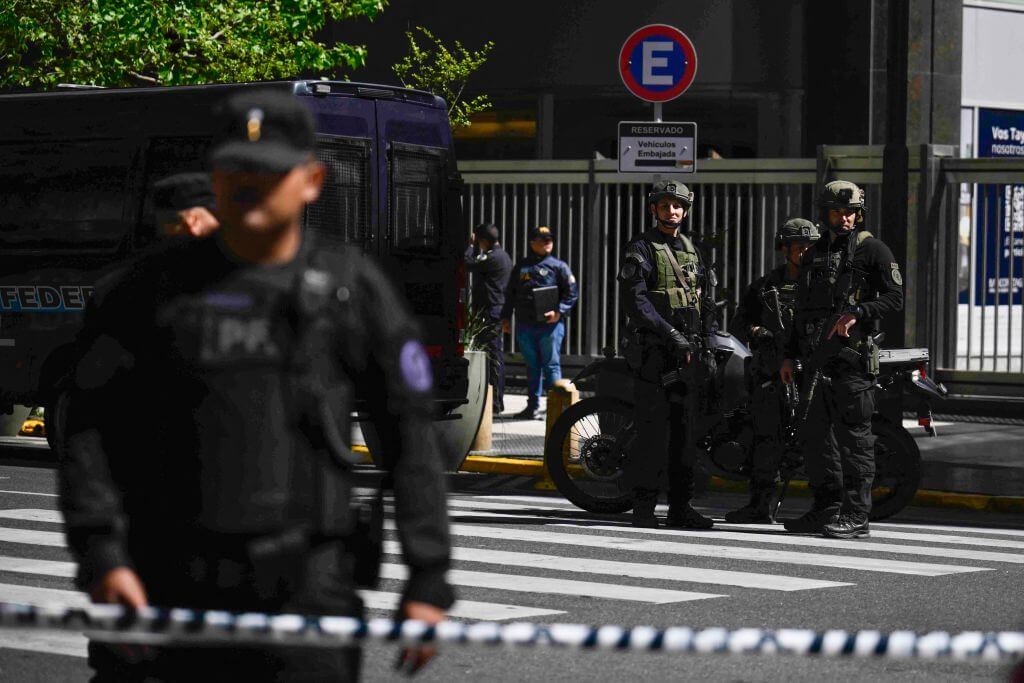US and Israeli embassies hit with bomb threats in Buenos Aires
Federal police evacuated the areas around the two embassies and helicopters patrolled the area

Federal Police officers stand guard on Mayo Avenue during a security operation around the Israeli embassy in Buenos Aires following a bomb threat, on October 18, 2023. Photo by Getty Images
BUENOS AIRES (JTA) — The U.S. and Israeli embassies in Argentina’s capital received bomb threats via email on Wednesday, including one that read “Jews we are going to kill you all.”
Federal police evacuated the areas around the two embassies — one in the city, the other in a suburb — and helicopters patrolled the area. Officials opened an investigation to determine the origin of the threats.
The U.S. embassy said it is back to normal operations on Wednesday afternoon, Reuters reported.
“They are coming for democracy, not only for Jews, for democracy,” said Jorge Knoblovits, president of DAIA, Argentina’s Jewish political umbrella group.
In an interview with the La Nacion TV news channel about threats to Jews, he added: “We are not canceling anything. We are not stopping anything. We are continuing with full Jewish life.” He was interviewed from Zagreb, Croatia, where he is participating in an international meeting about the situation in Israel.
Argentina has reinforced security at Jewish institutions in the wake of Israel’s war with Hamas, which has led to an increase in antisemitic incidents for Jews around the world. But Knoblovits said attendance at Jewish houses of worship and other places has not decreased.
A number of Argentinian expatriates were killed in the Hamas attack, all on kibbutzes in Israel’s south that were popular destinations for South Americans who moved to Israel. Argentina, like a number of other countries, has worked to airlift its citizens out of Israel; another plane arrived from Israel on Wednesday.
The Israeli embassy was attacked by a car bomb on March 17, 1992, that killed 29 and wounded more than 200. After that, the embassy was relocated to the 10th floor of a business building in the center of Buenos Aires.
Two years later, a bomb killed 85 people at the city’s AMIA Jewish center.
This article originally appeared on JTA.org.














